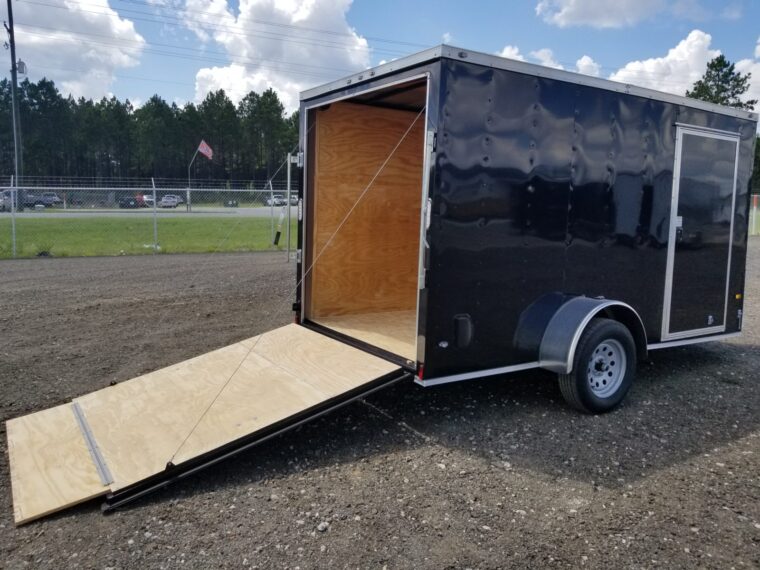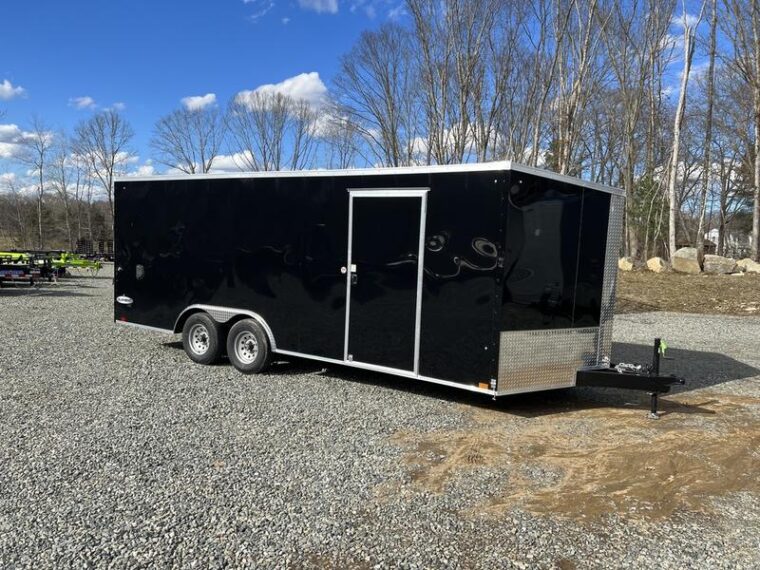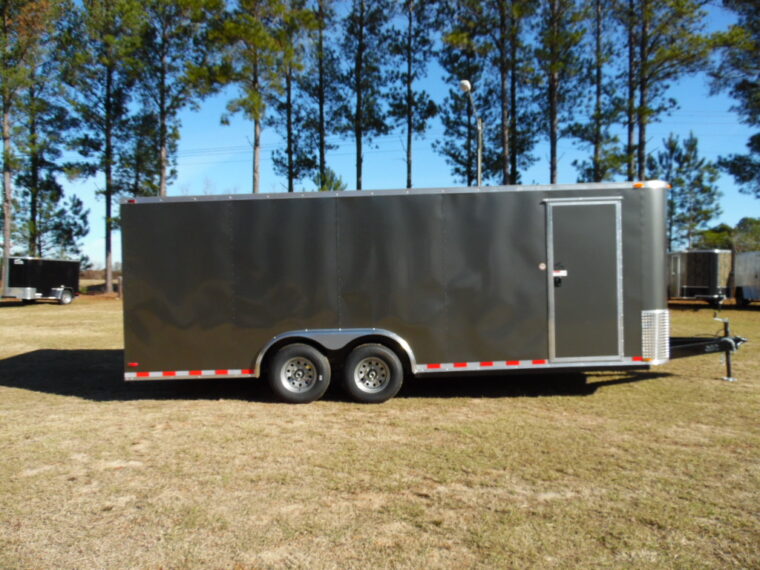When it comes to transporting goods, equipment, or vehicles, having the right trailer can make a world of difference. Covered trailers, also known as enclosed trailers, have gained immense popularity in recent years due to their versatility and the protection they offer to your valuable cargo. Whether you’re moving furniture, hauling construction equipment, or transporting classic cars, covered trailers provide a range of benefits that can’t be ignored.
What Are Covered Trailers?

Covered trailers are a type of trailer designed with an enclosed structure, providing a protective barrier around the cargo they carry. Unlike open trailers, which expose the contents to the elements, covered trailers shield the cargo from rain, wind, sun, and road debris. These trailers come in various sizes, ranging from small units that can be towed by a car to large units that require a heavy-duty truck.
Protection from the Elements
One of the most significant advantages of covered trailers is the protection they offer to your cargo. Rain, snow, and UV rays can all wreak havoc on items during transit. With a covered trailer, your belongings remain shielded from adverse weather conditions. Furniture, electronics, and delicate machinery are kept safe and dry, ensuring that they arrive at their destination in the same condition they were loaded.
Security and Privacy

Security is a top concern when transporting valuable items. Covered trailers provide an added layer of security by concealing the contents from prying eyes. Potential thieves won’t have a clear view of what’s inside, reducing the risk of theft. Moreover, the enclosed structure makes it more difficult for unauthorized individuals to access the cargo, offering peace of mind to owners.
Versatility
Covered trailers are incredibly versatile and can be customized to suit a wide range of needs. They are commonly used in various industries, including moving, construction, motorsports, and agriculture. These trailers can be equipped with shelves, hooks, and tie-down points to accommodate specific types of cargo. This adaptability makes covered trailers an ideal choice for individuals and businesses with diverse hauling requirements.
Transporting Specialized Cargo
Certain items require extra care during transport, such as classic cars, motorcycles, and antique furniture. Covered trailers are an excellent option for hauling specialized cargo due to their protective design. These trailers prevent dust, dirt, and debris from coming into contact with delicate surfaces, ensuring that your cherished possessions arrive unscathed.
Hauling in All Seasons

Extreme weather conditions can pose challenges when transporting goods. Covered trailers are designed to handle a variety of weather scenarios. In the summer, the enclosed structure keeps the interior cooler, preventing heat-sensitive items from getting damaged. In the winter, the protection from wind and snow ensures that your cargo remains unaffected by harsh conditions.
Branding and Advertising
For businesses, covered trailers can serve as mobile billboards. The exterior of the trailer can be customized with branding, logos, and contact information, effectively turning it into a rolling advertisement. This visibility can be especially advantageous for small businesses looking to increase their reach without a significant marketing budget.
Factors to Consider When Choosing a Covered Trailer
1. Size and Capacity: Determine the size and weight of the cargo you’ll be hauling to select a trailer with the appropriate dimensions and weight capacity.
2. Type of Cargo: Consider the type of cargo you’ll be transporting. Some trailers come with features like ramps, tie-downs, and shelving that cater to specific cargo types.
3. Budget: They come in a range of price points. Set a budget and explore options within that range to find the best fit for your needs.
4. Towing Vehicle: Ensure that your towing vehicle is capable of handling the weight of the trailer and its cargo. Check the vehicle’s towing capacity before making a decision.
5. Material and Construction: Look for trailers constructed from durable materials like steel or aluminum, as they offer better longevity and protection for your cargo.
Maintenance and Care
Just like any other equipment, covered trailers require regular maintenance to ensure their longevity and optimal performance. Here are some essential maintenance tips to keep your covered trailer in top condition:
1. Cleanliness: Regularly clean both the interior and exterior of the trailer. Remove any debris, dirt, or corrosive substances that may accumulate during use. Cleaning not only keeps the trailer looking good but also prevents rust and deterioration.
2. Check Seals and Gaskets: Inspect the seals and gaskets around doors and windows for signs of wear or damage. Damaged seals can compromise the trailer’s ability to keep out water and dust, so replacing them as needed is crucial.
3. Tire Maintenance: Check the tire pressure and condition before each trip. Underinflated tires can affect the trailer’s stability and fuel efficiency, while worn-out tires can lead to blowouts.
4. Grease Moving Parts: Lubricate hinges, latches, and moving parts to prevent friction and ensure smooth operation. Proper lubrication reduces wear and tear on these components.
5. Electrical System: Test all lights, including brake lights and turn signals, to ensure they are functioning correctly. Faulty lights can lead to accidents and fines.
Tips for Safe Towing
Safe towing is paramount when using a covered trailer. Proper technique and precautions can prevent accidents and keep you and others on the road safe. Consider the following tips:
1. Proper Hitch Setup: Ensure that the trailer hitch is properly connected to the towing vehicle. Double-check that safety chains and brake connections are secure.
2. Weight Distribution: Properly distribute the weight in the trailer to prevent swaying or fishtailing. Heavier items should be placed towards the front and centered side to side.
3. Driving Caution: Keep in mind that towing a trailer changes the dynamics of your vehicle. Drive cautiously, especially when accelerating, braking, and turning. Give yourself more time and space to react.
4. Braking Distance: The added weight of the trailer increases braking distances. Brake earlier and more gently than usual to avoid sudden stops.
5. Check Regulations: Different regions might have specific regulations regarding towing, such as speed limits and trailer dimensions. Familiarize yourself with these rules before hitting the road.
Conclusion
Covered trailers are more than just a means of transporting goods; they’re a versatile tool that provides protection, security, and convenience. From shielding valuable cargo from the elements to offering a platform for mobile branding, these trailers have become essential assets for both individuals and businesses. By understanding their benefits, proper maintenance, safe towing techniques, and the decision of renting versus buying, you can make the most of covered trailers and ensure the safe and efficient transportation of your belongings or merchandise.
